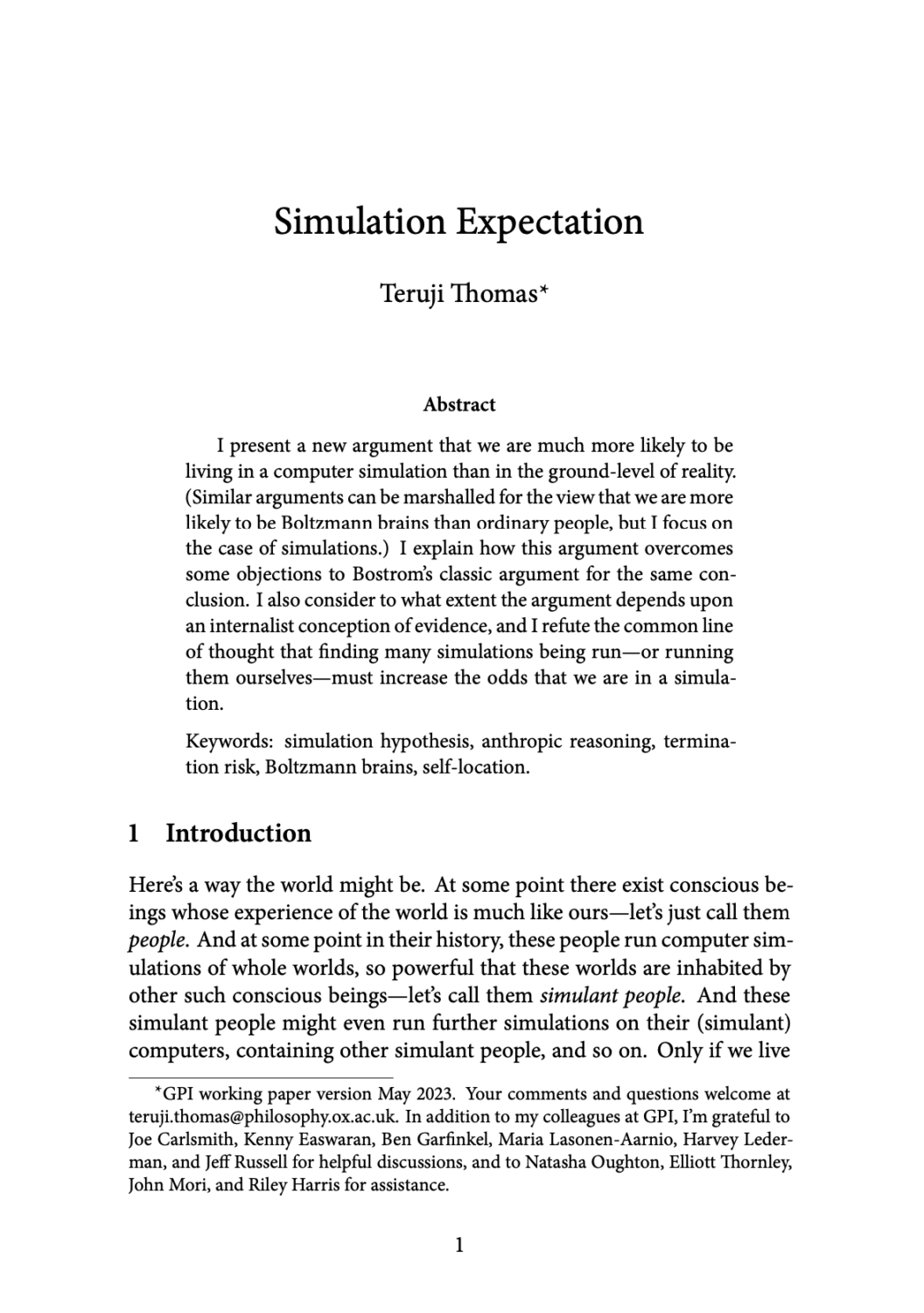Simulation expectation
Teruji Thomas (Global Priorities Institute, University of Oxford)
GPI Working Paper No. 16-2021, published at Erkenntnis
I present a new argument that we are much more likely to be living in a computer simulation than in the ground-level of reality. (Similar arguments can be marshalled for the view that we are more likely to be Boltzmann brains than ordinary people, but I focus on the case of simulations.) I explain how this argument overcomes some objections to Bostrom’s classic argument for the same conclusion. I also consider to what extent the argument depends upon an internalist conception of evidence, and I refute the common line of thought that finding many simulations being run—or running them ourselves—must increase the odds that we are in a simulation.
Other working papers
A paradox for tiny probabilities and enormous values – Nick Beckstead (Open Philanthropy Project) and Teruji Thomas (Global Priorities Institute, Oxford University)
We show that every theory of the value of uncertain prospects must have one of three unpalatable properties. Reckless theories recommend risking arbitrarily great gains at arbitrarily long odds for the sake of enormous potential; timid theories recommend passing up arbitrarily great gains to prevent a tiny increase in risk; nontransitive theories deny the principle that, if A is better than B and B is better than C, then A must be better than C.
Social Beneficence – Jacob Barrett (Global Priorities Institute, University of Oxford)
A background assumption in much contemporary political philosophy is that justice is the first virtue of social institutions, taking priority over other values such as beneficence. This assumption is typically treated as a methodological starting point, rather than as following from any particular moral or political theory. In this paper, I challenge this assumption.
A non-identity dilemma for person-affecting views – Elliott Thornley (Global Priorities Institute, University of Oxford)
Person-affecting views in population ethics state that (in cases where all else is equal) we’re permitted but not required to create people who would enjoy good lives. In this paper, I present an argument against every possible variety of person- affecting view. The argument takes the form of a dilemma. Narrow person-affecting views must embrace at least one of three implausible verdicts in a case that I call ‘Expanded Non- Identity.’ Wide person-affecting views run into trouble in a case that I call ‘Two-Shot Non-Identity.’ …

